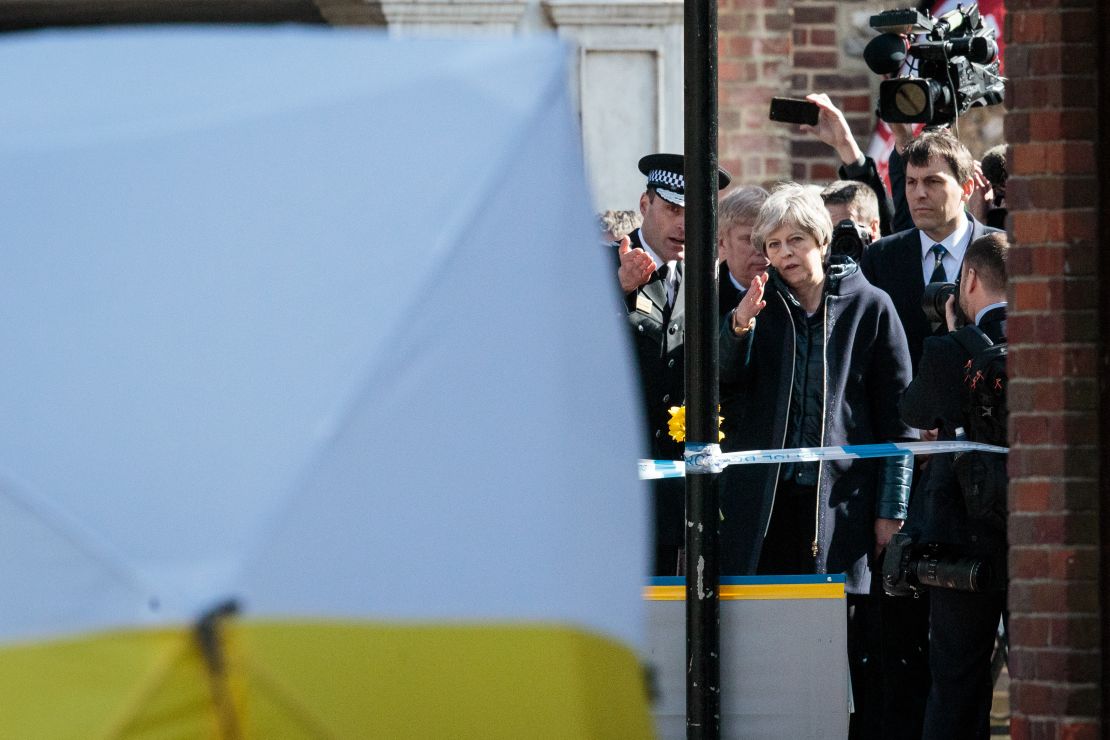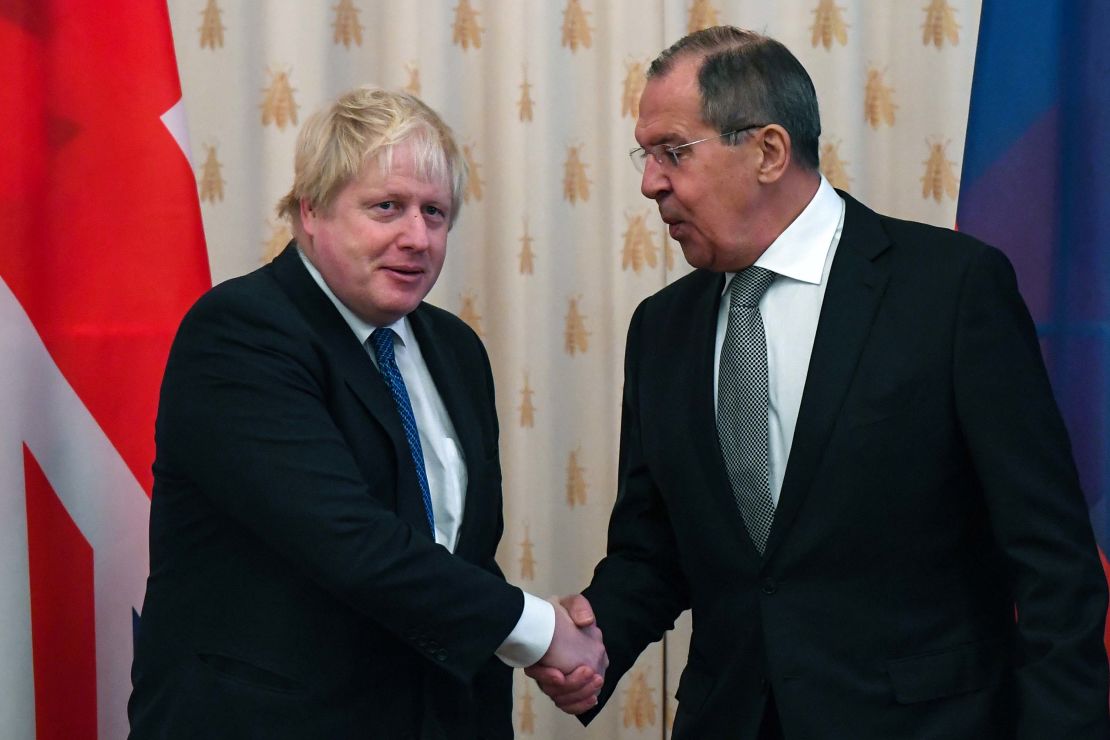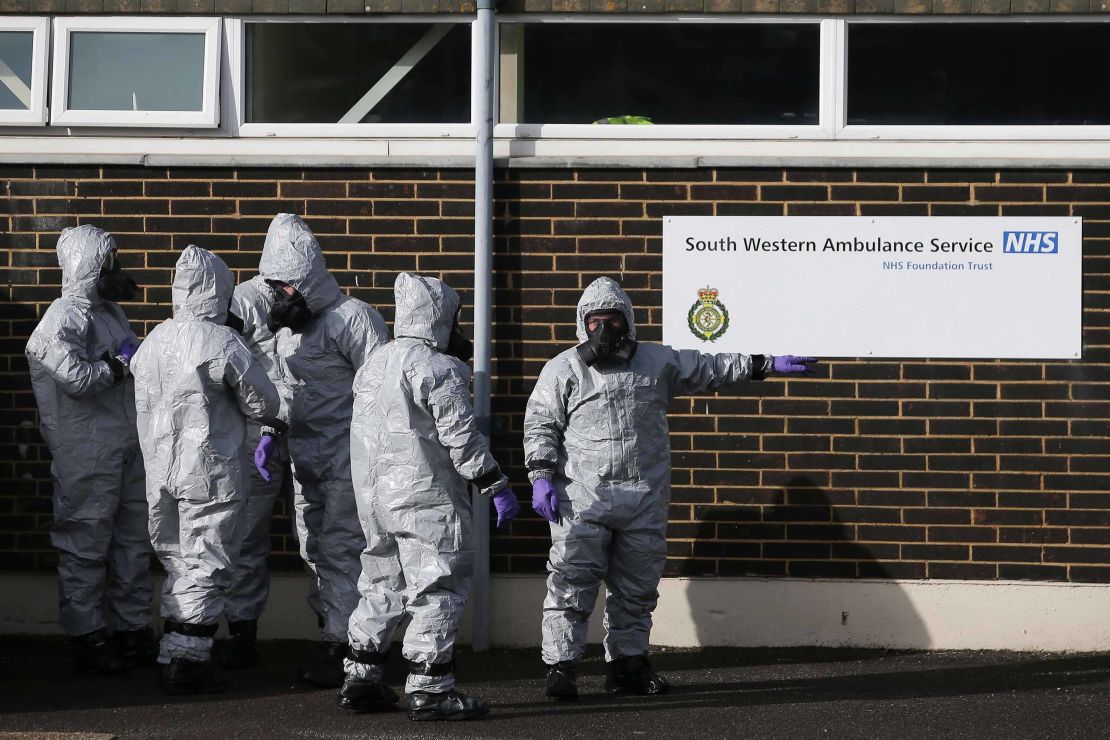Russia’s ambassador to the United Kingdom hinted at British involvement in the poisoning of a former Russian double agent as he reiterated his country’s stance Thursday that it had nothing to do with the attack.
Relations between London and Moscow have sunk to a new low over British claims that the Kremlin was behind the poisoning on March 4 of former Russian double agent Sergei Skripal and his daughter Yulia in the English city of Salisbury.
UK officials believe they were exposed to a Soviet-era nerve agent known as Novichok, which may have left them with compromised mental capacity.
Speaking at the Russian embassy in London, Ambassador Alexander Yakovenko questioned how it was possible for British authorities so quickly to designate the nerve agent “as so-called Novichok,” when the Organisation for the Prohibition of Chemical Weapons said it would take two to three weeks to analyze the sample.
“Could it mean that it’s highly likely that the British authorities already had this nerve agent in their chemical lab in Porton Down, which is the largest secret military facility in the UK that has been dealing with chemical weapons?” Yakovenko asked, noting that the facility lies only eight miles from Salisbury.
A British court gave permission on Thursday for blood samples to be taken from Sergei and Yulia Skripal for testing by inspectors with the OPCW to check against the analysis performed by Porton Down’s research laboratory.
An unidentified doctor treating the Skripals said they were both heavily sedated and unable to communicate, and that it was not possible to assess to what extent either would be able to regain mental capacity, according to the court’s ruling.
“The precise effect of their exposure on their long-term health remains unclear, albeit medical tests indicate that their mental capacity might be compromised to an unknown and so far unascertained degree,” Judge David Williams wrote.
Yakovenko called on British authorities to share investigators’ findings with Russia, saying repeatedly that the United Kingdom was in violation of the 1963 Vienna Convention on Consular Relations by refusing to allow Russia consular access to Sergei and Yulia Skripal after their poisoning, since both hold Russian citizenship.

Britain seeks EU condemnation
Amid the worsening diplomatic dispute, UK Prime Minister Theresa May was to tell a summit of European Union leaders in Brussels later Thursday that the bloc must stand united against Russia and its threat to European democracies.
“Russia staged a brazen and reckless attack against the United Kingdom when it attempted the murder of two people on the streets of Salisbury,” she told reporters as she arrived.
“I’ll be raising this issue with my counterparts today because it’s clear that the Russian threat does not respect borders and indeed the incident in Salisbury was part of a pattern of Russian aggression against Europe and its near neighbors, from the Western Balkans to the Middle East.”
May also thanked European allies for their solidarity and support. France and Germany, as well as the United States, signed a joint statement last week condemning the poisoning as “an assault on UK sovereignty” and saying there was “no plausible alternative explanation” than that Russia was responsible.
Russia slams ‘Hitler’ comparison
Responding to reporters’ questions, Yakovenko criticized remarks by UK Foreign Secretary Boris Johnson – in which he drew a comparison between Russia’s promotion of its hosting of the 2018 soccer World Cup and Adolf Hitler’s use of the 1936 Berlin Olympics – as “unacceptable and totally irresponsible.”
“Nobody has the right to insult the Russian people who defeated Nazism and lost more than 25 million people by comparing our country to Nazi Germany. That goes beyond common sense,” Yakovenko said.

At the same time, he assured British soccer fans traveling to Russia for the World Cup that they would be safe despite the ongoing diplomatic row.
Kremlin spokesman Dmitry Peskov earlier slammed Johnson’s statement as “completely disgusting” and unfitting of any foreign minister.
Johnson’s comments were made Wednesday at a meeting of Britain’s Foreign Affairs Select Committee, when he agreed with a lawmaker’s suggestion that Russian President Vladimir Putin intended to use the World Cup as a “PR exercise” to gloss over a “brutal, corrupt regime” in the same way that Hitler promoted the 1936 Olympics.
“I think the comparison with 1936 is certainly right,” Johnson said. “I think it’s an emetic prospect, frankly, to think of Putin glorying in this sporting event.”
Johnson: Timing ‘connected’ to Russian election
Twenty-three Russian diplomats left Britain on Tuesday after they were expelled in response to the Salisbury attack. Moscow has ordered the tit-for-tat expulsion from Russia of 23 British envoys and also closed down the British Council, a cultural institute.
Meanwhile, Sergei Skripal, 66, and his 33-year-old daughter remain critically ill in the hospital. A British police officer also fell ill from exposure to the substance.

Speaking Wednesday, Johnson said he believed the timing of the attack was “probably more closely connected with the recent election in Russia,” which was overwhelmingly won by Putin.
He also insisted there was no desire to “engage in a new Cold War” with Russia. The UK still held out the hand of friendship to the Russian people, he said, “because our quarrel is emphatically not with them. Our quarrel is not with the Russians. It is with Putin’s Kremlin.”
Johnson said Sunday that Britain had information showing Russia was “producing and stockpiling quantities of Novichok,” in violation of the Chemical Weapons Convention. He had previously said it was “overwhelmingly likely” that Putin personally gave the order to use the nerve agent against Sergei Skripal.
The Russian Foreign Ministry invited foreign ambassadors to a briefing in Moscow at which it also reiterated its denial of involvement in the Skripal poisoning and raised questions over the UK authorities’ actions. The UK and US declined the invitation.
US State Department spokeswoman Heather Nauert said the two nations were right not to send their ambassadors to hear “implausible denials.”
In response, the Russian embassy in Washington said Thursday that the Americans had “decided to put all their eggs in one British basket,” and urged an end to the “demonizing” of Russia. “It is high time to stop blaming us for every sin,” read the embassy statement.
CNN’s Hande Atay Alam, Radina Gigova, Nada Bashir and Livvy Doherty contributed to this report.



